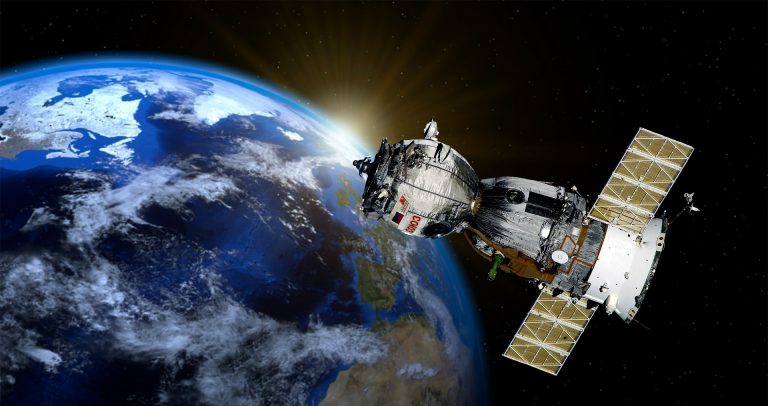
SOURCE: IANS
If the Indian government wants to bring in private participation in the space sector, then the communication satellite operations of the Indian space agency could be hived off into a separate company – INSAT Corporation, said a senior retired official of the Indian space agency. “World over communication satellites are operated by corporates. That is where the money is. India can follow the European model, whereby a space activity that shows commercial possibility is spun off into a separate company,” M.Y.S.Prasad, former Director of Satish Dhawan Space Centre, Sriharikota told IANS.
He was also the Director of the Master Control Facility, Hassan that controls all Indian communication satellites.
“I am not advocating complete privatisation of Indian Space Research Organisation (ISRO) or its activities. The operations of communication satellites can be brought under a public sector corporation in which the private sector can also invest at an appropriate valuation, said Prasad, the Vice Chancellor, Vignan”s Foundation for Science, Technology and Research University, Andhra Pradesh.
According to Prasad, the proposed company can even place an order for satellites with the Indian Space Research Organisation (ISRO). Communication satellites with a higher number of transponders, say 100 transponders, will make the operations efficient.
He said the ISRO has about 20 communication satellites in the sky. Satellite services and ground systems generate the most revenue for the global space industry players with each contributing about 45 per cent of the total industry revenue.
The remaining is shared between satellite manufacturing and rocket/satellite launch services.
According to him, historically only one or two space activities are profitable and the world over it was the government which first invested in space activities.
On the economics of a communication satellite, Prasad said the lease rent for a transponder per year is about $1 million.
“A communication satellite with about 30-40 transponders with a life span of 15 years needs a total investment of about Rs 1,500 crore. The investment made can be recovered during the first half of the satellite”s life span and post that it is all profits for the operator,” Prasad said.
However, there is also the risk of the satellite getting lost from day one, he added.
Prasad said unless there is visibility about the number of satellites that would be manufactured in a year, the private sector may not come in with investment to make and market satellites.
According to him, a rocket launch centre should have a business of about Rs 2,000 crore per annum as it would involve an annual expenditure of over Rs 400 crore.
“The rocket launch centre should have a business to launch at least 15 rockets a year. Rocket launch centres are under government control in the world. Similarly, the remote sensing data does not fetch any big business. In the case of satellite navigation services, the money is only in the ground systems,” Prasad said.
The other area where local manufacture could be looked at is the ground equipment segment where a lot of imports are happening, he remarked.
“Of the present global space economy of $360 billion, 1.7 per cent revenue comes from the launch segment, 5.3 per cent from satellite manufacturing, 35 per cent from satellite services or payloads and another 34.7 per cent from ground services,” Tapan Misra, Senior Advisor, ISRO, told IANS.
On May 16, Finance Minister Nirmala Sitharaman announced that the Indian private sector will be a co-traveller in India”s space sector journey and a level playing field will be provided for them in satellites, launches, and space-based services.
She also said a predictable policy and regulatory environment will be provided to private players.
According to her, the private sector will be allowed to use the facilities of ISRO and other relevant assets to improve their capacities.
Sitharaman said future projects for planetary exploration, outer space travel and others are to be opened up for the private sector, adding there will be a liberal geo-spatial data policy for providing remote sensing data to tech entrepreneurs subject to various checks.
Welcoming Sitharaman”s proposal to revamp the space/data policy Misra said: “If we target even five per cent of the global space economy, we are looking at a business potential of more than Rs 125,000 crore while ISRO”s budget is hovering around Rs 10,000 crore. We have a huge potential in the space industry which we could not harness in a commercial sense.”
Former Chairman of ISRO Madhavan Nair told IANS: “However we have to carefully consider some of the policy matters. First of all, there has to be our national space law which will define responsibilities and liabilities.”
Nair said there has to be a proper control mechanism to ensure that the sensitive and critical technologies do not fall into the wrong hands.
“In spite of not having a viable aerospace industry in the country, ISRO has taken the initiative to ensure industrial participation in its programmes,” Nair said.
According to him, space doesn”t bring large revenues or profits and how many would take up this challenge is a question.
“Space exploration is still more complex because returns are negative and it is only a long-term investment. The implementation has to be done taking into account sensitivity to international regulations like MTCR (Missile Technology Control Regime) and international space laws,” Nair said.
https://defencenewsofindia.com/centre-can-hive-off-comm-sat-operations-as-insat-corporation/






